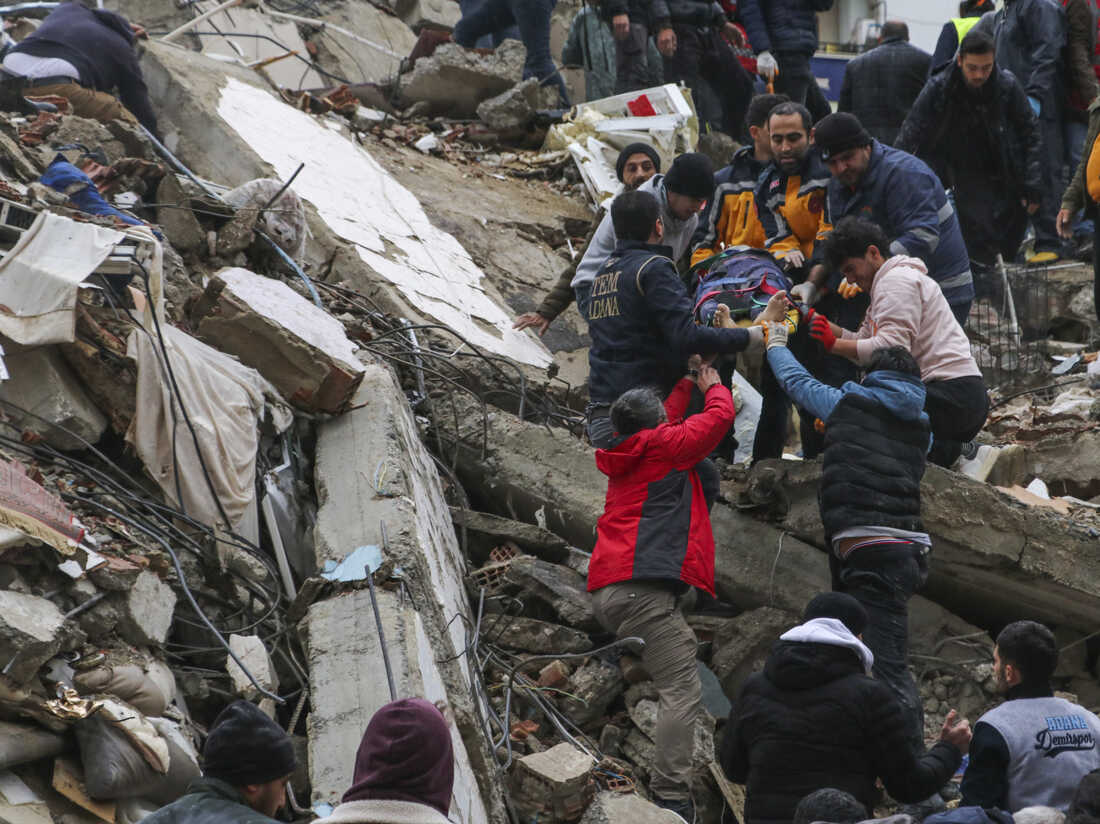
The official death toll of a devastating earthquake in Turkey and Syria jumped to more than 8,700 people on Wednesday as overwhelmed rescuers warned that the number would grow significantly with families still trapped under the rubble.
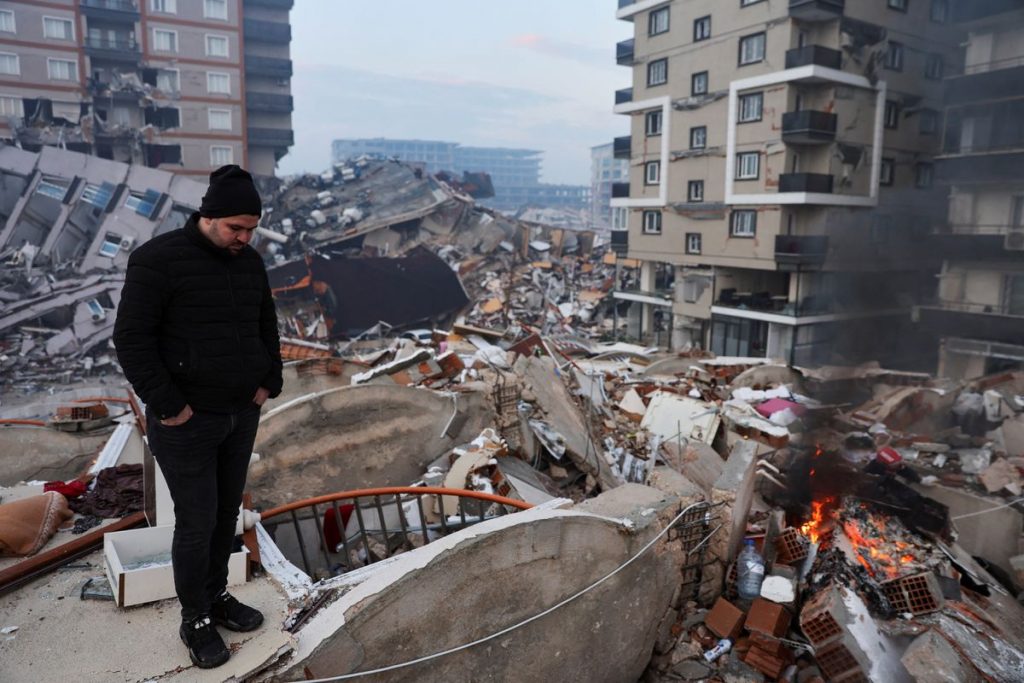
In Turkey, many people spent a second night of freezing temperatures sleeping in their cars or in the streets under blankets, worried to go back into buildings shaken by Monday’s 7.8 magnitude quake – the country’s deadliest since 1999.
“Where are the tents, where are food trucks?” said Melek, 64, in the southern city of Antakya, adding that she had not seen any rescue teams.
“We haven’t seen any food distribution here unlike previous disasters in our country. We survived the earthquake, but we will die here due to hunger or cold here.”
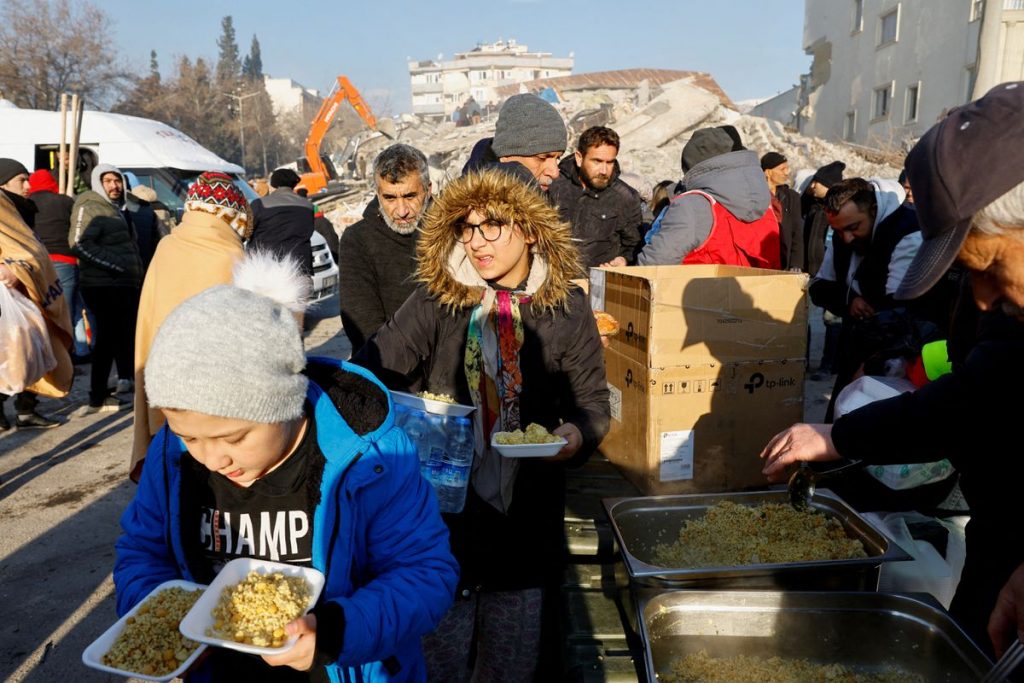
With the scale of the disaster becoming ever more apparent, the death toll – now 6,234 in Turkey – looks likely to keep on rising.
In neighbouring Syria, already devastated by 11 years of war, the death toll climbed to more than 2,500 overnight, according to the Syrian government and a rescue service operating in the rebel-held northwest.
Turkish President Tayyip Erdogan has declared a state of emergency in 10 provinces. But residents in several damaged Turkish cities have voiced anger and despair at what they said was a slow and inadequate response by the authorities.
The initial quake struck just after 4 a.m. on Monday, the dead of night in the dead of winter, giving the sleeping population little chance to react.
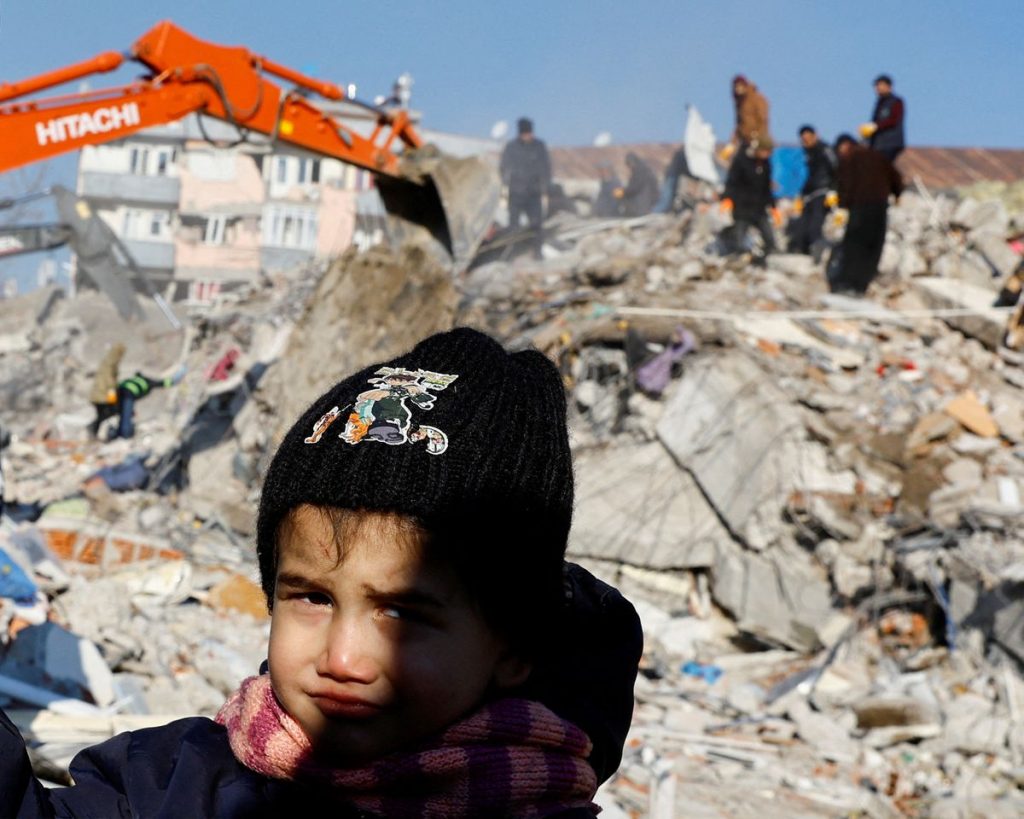
Erdogan, facing a tight election in May, is expected to visit some of the affected areas on Wednesday.
Turkish authorities say some 13.5 million people were affected in an area spanning roughly 450 km (280 miles) from Adana in the west to Diyarbakir in the east – broader than that between Boston and Philadelphia, or Amsterdam and Paris.

































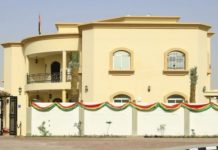
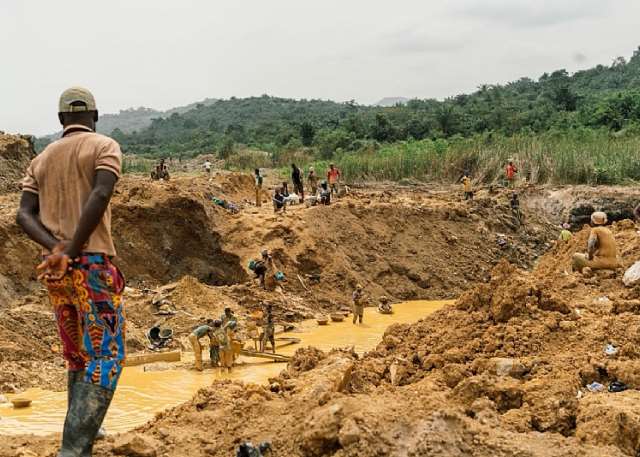





















![[FREE FREE MONEY] Predict and Win a Guaranteed GH¢200 From Us EVERY WEEK](https://wordpress.ghanatalksradio.com/wp-content/uploads/2022/02/Predict-and-Win-Final-09-03-2021-218x150.jpg)
![[Predict & Win – 8th/Oct.] WIN A Guaranteed ¢200 From Us This Week](https://wordpress.ghanatalksradio.com/wp-content/uploads/2021/10/maxresdefault-16-218x150.jpg)
![[Predict & Win – 2nd] WIN A Guaranteed ¢200 From Us This Week](https://wordpress.ghanatalksradio.com/wp-content/uploads/2021/09/maxresdefault-50-218x150.jpg)
![[Predict & Win – 25th] WIN A Guaranteed ¢200 From Us This Week](https://wordpress.ghanatalksradio.com/wp-content/uploads/2021/09/maxresdefault-36-218x150.jpg)
![[Predict & Win – 18th] WIN A Guaranteed ¢200 From Us This Week](https://wordpress.ghanatalksradio.com/wp-content/uploads/2021/09/maxresdefault-23-218x150.jpg)








![[National cathedral] See full list of churches that have contributed since 2018](https://wordpress.ghanatalksradio.com/wp-content/uploads/2020/09/Ghana-National-Cathedral-GhanaTalksRadio-100x70.jpg)



